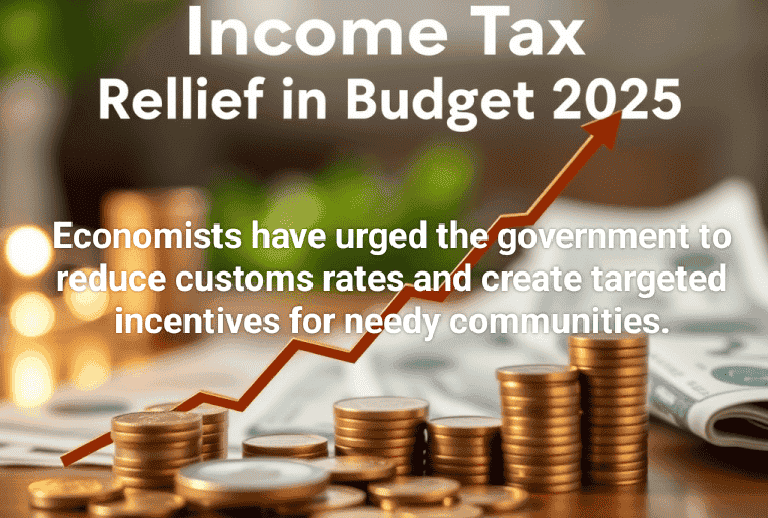Income-Tax Relief in Budget 2025, PM aiming for Viksit Bharat, Know what Economist Suggests?

Economists have urged the government to reduce customs rates and create targeted incentives for needy communities.
In a recent pre-budget discussion with Prime Minister Narendra Modi, they advocated for lower income tax rates and proposed reforms to encourage savings and stimulate economic growth ahead of the Union Budget 2025.
Economists have urged the government to reduce customs rates and create targeted incentives for needy communities. One important idea was to lower income tax rates, which economists say will reduce the tax burden and hence increase disposable income.
This boost in disposable income would allow citizens to save more and spend on necessities, perhaps reviving demand in industries impacted by lower consumption.
In addition to tax rate changes, recommendations included reducing customs charges and providing targeted benefits to low-income groups. Economists claimed that lower tax rates for these households would improve their financial stability, benefiting household budgets and potentially promoting increased aggregate consumption.
India’s GDP growth fell short of the Reserve Bank of India’s 7% objective, rising at a modest pace of 5.4% in the July-September quarter. Inflation has risen above the RBI’s medium-term objective of 4%, compressing household budgets, cutting disposable income, and limiting discretionary spending.
This trend may lead to further declines in demand. To reduce inflation and stimulate growth, economists advocate direct benefit transfers, increased governmental spending in rural regions, and non-agricultural job creation incentives.
The Bhartiya Prime Minister’s tax relief decision and the aim towards Viksit Bharat Abhiyan were discussed during a meeting.
During the conversation, Prime Minister Modi emphasized job creation as the key goal of government policy. Economists emphasized the importance of better data quality in making successful policy decisions, and they pushed for focused actions to combat low consumption, inflation, and external economic concerns.
The Prime Minister restated his aim of “Viksit Bharat,” or a developed Bharat & bhartiy nagrik by 2047, and underlined the necessity of innovative thinking in ensuring long-term progress, particularly in the face of global economic uncertainties.
The Union Budget 2024-25 included significant income tax reforms, including lowering tax slabs for earnings of up to Rs 10 lakh, increasing standard deductions for salaried individuals and pensioners, and increasing the employer contribution deduction for the National Pension Scheme for private-sector employees from 10% to 14%.
Industry representatives from CII (competition cammition of india), FICCI, and PHDCCI have proposed extensive tax reforms for the next Budget 2025, such as simplifying capital gains tax, streamlining compliance processes, eliminating TDS provisions, and establishing a dedicated dispute resolution system.
GST 2.0 will be a simpler three-rate structure that includes all expenses in the input tax credit chain. Industry groups are calling for changes to direct taxes, such as lowering tax rates for partnerships and LLPs, eliminating dividend distribution tax, and providing relief for share buybacks. Customs-related efforts include a single certificate of origin for numerous bills of entry, streamlined appeals processes, and 0% customs charge on necessary commodities. These ideas are intended to simplify tax procedures, minimize compliance burdens, and improve India’s business environment.